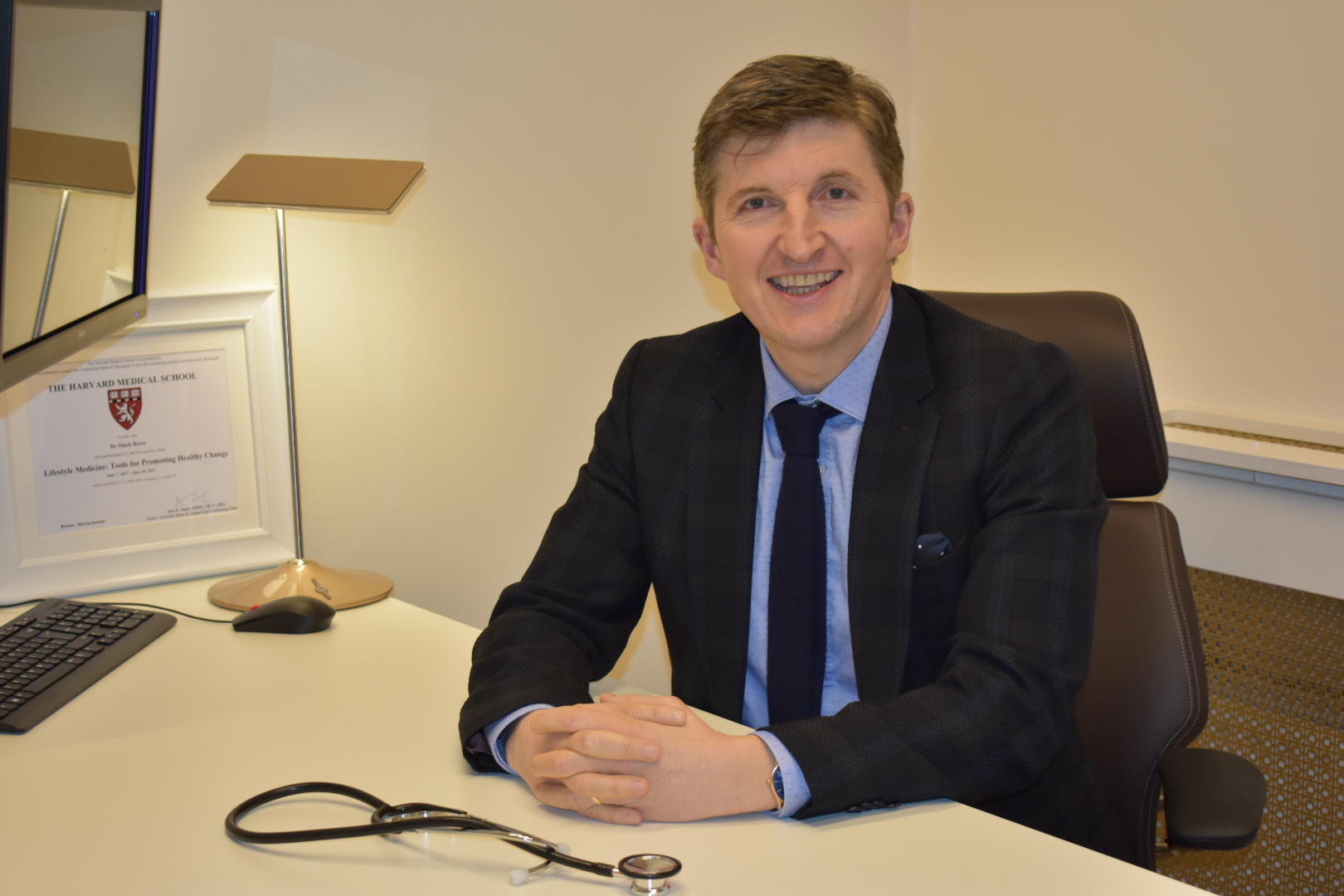Harness The Power of Positive Lifestyle Changes.
Anxiety is a negative emotion triggered by a part of the brain called the amygdala (what I term the emotional alarm clock or red button for stress). Of course it is perfectly normal to experience some anxiety with many of life’s challenges, and particularly at the moment with so much understandable concern about the Coronavirus (Covid-19).
Generally feeling a little anxious enables you to embrace stress and enhance your performance. However when this feeling of anxiety becomes excessive, prolonged or exceeds a tipping point of coping that it has negative consequences for your health and wellbeing. This is where it becomes an anxiety disorder.
As a doctor, anxiety of one form or another is one of the most common conditions I encounter. It has truly become a modern day epidemic, in this ‘age of anxiety.’ It is the most common mental health issue, estimated to affect at least one in every nine people at some stage.
Severe anxiety can be really crippling and debilitating for those who suffer from it, detracting from their quality of life. Anxiety can significantly impact your emotional and psychological wellbeing. Long-term adverse effects of anxiety on physical health include an increased risk of diabetes, heart disease, and high blood pressure.
Other medical conditions that can trigger feelings of anxiety include an overactive thyroid gland, chronic pain, and other mental health conditions including clinical depression.
Moreover many people suffer in silence with only about a third of sufferers ever presenting for treatment which is unfortunate. It doesn’t have to be that way which is which I’m writing articles like this. Knowledge is power!
Lifestyle Changes to Alleviate Anxiety
If you suffer from symptoms of anxiety, here are some lifestyle strategies to bring more inner balance to your mind and to help alleviate symptoms of anxiety.
Sleep
When sleep deprived (which for most people means getting less than seven and a half to eight hours sleep each night), the fine tuning between the logical and emotional parts of your brain becomes impaired. The negative noise from the amygdala becomes louder. As a result you tend to live your day controlled by your primitive brain which is focused on fear and survival rather than positivity. As your emotional bank account becomes depleted of positivity you become emotionally more fragile, less resilient and far more anxious.
Exercise
As I like to say, exercise is the greatest pill of all. In terms of mental and emotional health benefits, exercise helps to dissolve feelings of anxiety and negative stress. It brings on a cocktail of brain chemicals including oxytocin, dopamine, noradrenaline and serotonin that have the net effect of ramping up feelings of positivity and reducing feelings of stress. I consider exercise to be an anti-anxiety vaccine, so powerful can it’s stress busting benefits be.
Nature
Spending time in nature is something that enables me to recharge and clear the mental fog from a busy day. To regain inner balance, more relaxed and rested. Overall a great tonic and counter balance to the noise of modern life. Biophilia is the scientific term for this hardwired biological need to connect with nature. Spending time in nature lowers levels of stress hormones like cortisol and adrenaline while reducing feeling of anxiety, nervous tension or negative stress. It quietens your inner critic, that inner negative voice which replays all sorts of negative scenarios in your mind. Nature can give you a positivity boost, whereby you become far more creative and expansive in your thinking.
Drink
Alcohol in excess is a major trigger of anxiety symptoms. As a natural depressant drug, it can be a major trigger of feelings of depression, anxiety, and panic. As I say, alcohol can be a good servant but is a very bad master. Less is more.
As a stimulant, excess caffeine can certainly exacerbate anxiety feelings with some people being particularly sensitive to these effects. Remember the half life of caffeine is more than five hours so lunchtime caffeine will leave levels quite high even as bedtime approaches. Dehydration and deficiency of fluids can also lead to feelings of anxiety, so make sure you stay well hydrated.
Talking- Support from your Friends
If you’re feeling overwhelmed emotionally or mentally, let your friends and family know. Pick up the phone, make that call, It’s good to talk. Don’t be an island and try to fight your battles alone. While social media has many downsides, one of the benefits is how it can enable you to stay connected with people ordinarily out of easy reach.
Slow Your Breathing
Consciously slowing your breathing down to four or five breaths per minute for even a minute or two has so many potential health benefits, a real gift for your self care and sense of overall vitality.
Psychologically it is is a great reminder that you are in control, that, instead of reacting to noise and negative stress, you can choose how to respond in any given moment. Emotionally, it dampens down the stress response from the amygdala, located close to the breathing centre in the brain. As a result you move away from feelings of ‘fight or flight’ stress and anxiety towards the pause and plan restoration response. Dampening down feelings of anxiety or needless negativity. Enabling you to feel more cool, calm and collected.
Keep A Journal
As Socrates the philosopher once wrote the key in life is to ‘know yourself.’ Taking the time to write things down can teach you so much. To see things as they are rather than as you think they are – which usually means seeing things as being worse than they are. Emotional release from journaling can prevent you from pouring that emotional toxicity into outer life. To challenge negative thinking patterns and stop negative energy from ramping up feelings of stress and anxiety – short circuiting your potential . To face your fears, accepting the reality that there are many things in your life that you can’t control. This enables you to let go of these worries, and the additional stress and anxiety that results. Writing in your journal is also a terrific way to reframe life’s challenges and setbacks through the lens of growth and meaning, diminishing anxiety. To appreciate your pain points and leverage them to become your source of greatest growth.
Express Gratitude
Writing down three things you feel grateful for every day is a terrific way to dissolve feelings of negative stress and enhance your sense of wellbeing. By focusing your attention on those things you feel grateful for, you help to dampen down and dissolve feelings of hostility or anxiety. I call gratitude an anti-anxiety vaccine – it’s very difficult to feel grateful and stressed at the same time. Try it and see for yourself.
Meditation
Meditation has many benefits including reductions in perceived stress and sense of anxiety and building calm and contentment. It quietens the monkey mind and builds tour awareness and mindful presence. Try it and see for yourself. If you have access to ‘Spotify’ I have a number of meditations in my podcast ‘In the Doctors Chair.’ https://open.spotify.com/show/16d1a2PJoWOCoEZ9kaTO71 or FREE on Anchor https://anchor.fm/dr-mark-rowe
Stay Well Everyone.


